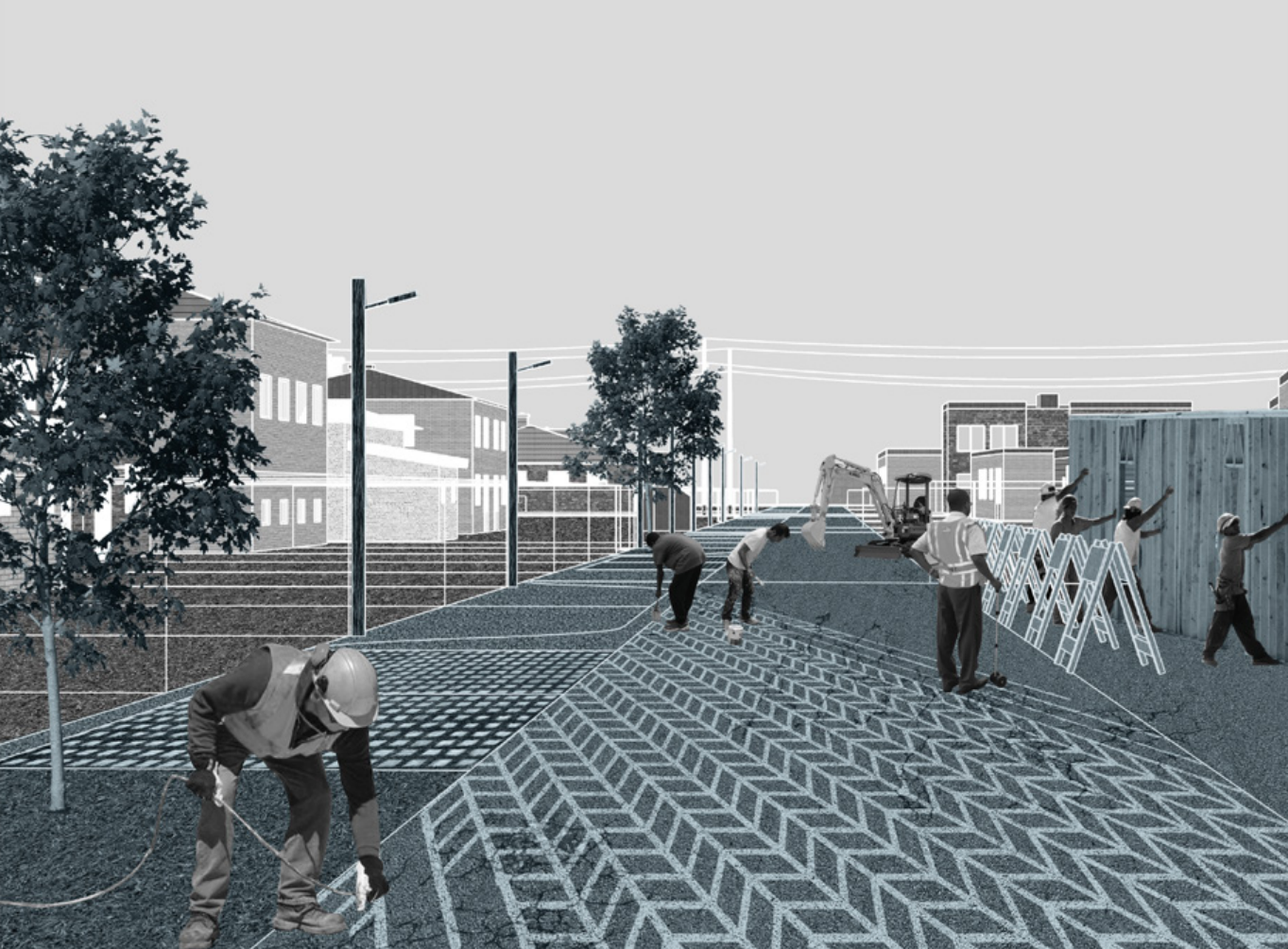
2018 graduate Yuxun Emmeily Zhang's thesis, Spaces for Economic Diversity won the Award of Merit in the Student Category of the 2019 Toronto Urban Design Awards.
The 2019 jury praised Zhang's submission. "This research and design proposal argues that the City of Toronto's employment zones are shrinking and under significant development pressure because they have been too narrowly defined by zoning bylaws and that by allowing only very specific uses, employment areas haven't served the diverse range of productive activities that Toronto residents could otherwise benefit from. The author explores how this may have created a physical and social divide for Toronto's populations and proposes to alter the current zoning map with an "Overlay for Economic Diversity." This new layer would make it possible to develop new employment opportunities in currently unused spaces between employment zones and residential areas, making employment zones more accessible to a range of different people and different scales of operation. Spaces for Economic Diversity is a thoughtful and provocative proposal for how we might reimagine work and life in the city."
Zhang's thesis Supervisor was Adrian Blackwell and Committee member was Lola Sheppard.
Read the Jury Report (PDF).
View the 2019 winning projects.